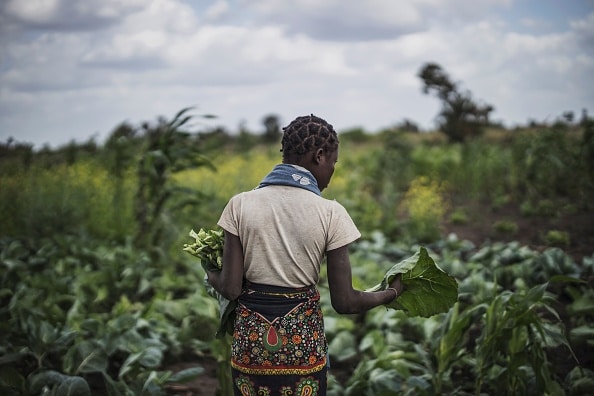By Sabdiyo Dido Bashuna, Senior Technical Adviser Value Chains & Agribusiness, Technical Centre for Agricultural and Rural Cooperation (CTA)
As Covid-19 continues its spread across Africa, the restrictions to limit infection are having a disproportionate impact on half of the continent’s food growers and producers: women.
At a time when food security is under extra strain because of the pandemic, women in agriculture are enduring extra hygiene and social distancing measures on top of endemic inequalities, which together undermine their capacity to respond and recover from the crisis.
But the pandemic has also triggered creativity and survival techniques, leading to product diversity, new digital marketing and distribution channels.
Across Africa, women make up 50 per cent of the agricultural labour force as well as often taking primary responsibility for caring for families, households and communities.
Yet historic inequalities mean women are facing the added pressure of the coronavirus outbreak while also having access to just a fraction of the necessary resources, from land and labour to finance and trainings.
In normal times, the productivity gap between men and women farmers is an estimated 30 per cent as a result of unequal access to resources, but with shocks like coronavirus exacerbating existing inequalities, the potential impact on food production, food security and nutrition could be far greater.
Better supporting African women in agriculture would help bridge this gap and increase both yields and profitability, providing more food for the poor, sick and hungry, and more income to support rural families during the global health emergency. So how can we do this during the pandemic?
One challenge of persistent gender inequality is that women, whose roles are often home-based and even more so during the coronavirus outbreak, tend not to present themselves for support.
The first barrier to overcome, then, is reaching women in the first place, whether with agricultural advice, financial support or valuable farm inputs like seeds, fertilizer and pesticides.
For more than three decades, CTA has worked closely with extension workers in Africa, who make direct contact with women through cooperatives and communities while also championing digital tools and services that are less intrusive or demanding.
Online networks such as VALUE4HERConnect have provided a platform for African women entrepreneurs in agriculture that offers networking, mentoring and training support in a way that is convenient for heads of households.
These kinds of networks are also helpful for addressing a second challenge resulting from gender inequality, which is that the majority of women’s agri-businesses tend to be smaller and more likely to fail given the low levels of resilience.
To be effective, any tailored support for women must also be channelled with such small businesses in mind. Only a small fraction of rural women own bank account, for example, so accessing such funds is a challenge.
Providing grants and flexible loans for women can help them afford financial services like insurance and credit that protect their livelihoods against stresses while allowing them to invest in growing their enterprises.
Additionally, for women to fulfil their often care-based roles in households and on farms throughout the pandemic, they must be safe, both from the risk of infection and gender-based violence, which has increased as a result of lockdowns.
Finally, the new coping mechanisms and survival techniques adopted by women in agribusiness during the pandemic need to be documented, supported and scaled to cushion them from failure and help build resilience against future shocks.
Governments, health agencies and non-profits must provide technical assistance to help educate women on navigating the complexities caused by this pandemic, from basic hygiene measures to skills such as business management, renegotiation of supply contracts, or accessing business support.
Women smallholders already play such a vital role in producing and providing food in low-income countries, which has become all the more important in the wake of coronavirus.
But without targeted and appropriate support, they miss fulfilling their potential, which is a loss to women and families that depend on their incomes, and in the grip of a pandemic, it may also be a fatal oversight.
